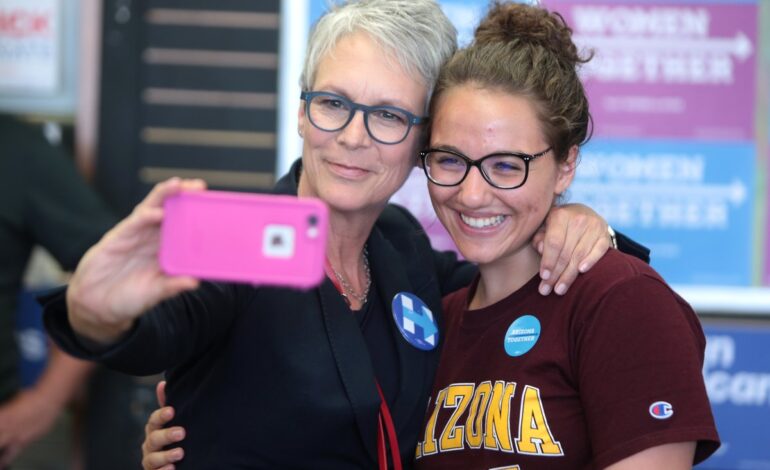Jamie Lee Curtis Breaks Down Over Charlie Kirk’s Death: Faith, Fire, and a Frenzy of Feelings

Elena West here, ready to power up your perspective and light the fuse on this story with the same energy I bring to every breakthrough moment. This headline-grabbing moment centers on Jamie Lee Curtis, who became visibly emotional while discussing the late Charlie Kirk during a recent interview, praising him as a “man of faith” even as she admitted deep political differences and a heavy concern about the constant stream of violent imagery in our lives. Curtis, 66, spoke on Marc Maron’s podcast WTF about Kirk and his assassination at a Utah Valley University event that drew national attention. While she and Kirk stood on opposite sides of the political spectrum, Curtis underscored a universal human element—the idea that someone who dies in the glare of public life may still be tethered to faith, family, and a personal story that extends beyond ideology. Her remarks centered on the notion that we are all navigating a media-saturated landscape, where traumatic imagery can haunt the psyche and influence perceptions of humanity.
In the interview she clarified a light misstep in her early commentary, correcting herself from referring to Kirk as “Crist,” the former lieutenant governor, and explaining that her statement was rooted in what she perceives as a “deep belief” or connection to God. The moment she shares is not a political endorsement but a humane reflection on mortality, faith, and the very human impulse to seek meaning when a public figure is taken too soon. The conversation delves into the relentless news cycle and the psychological effects of repeated exposure to violence. Curtis notes that society is bombarded by images of catastrophe on screens and phones, creating a sense of numbness and questioning of what long-term impact this has on compassion and humanity. She acknowledges the difficulty in reconciling abhorrent political stances with the insistence on recognizing the person behind the spectacle—the father and husband who built a life around faith and family.
The larger context of Kirk’s death is tragic and timely. Kirk, founder of Turning Point USA, was shot while speaking at an event as part of his American Comeback Tour. An arrest followed for Tyler Robinson, a 22-year-old suspect who, according to investigative updates, has not cooperated with law enforcement. Kirk’s death drew swift public responses from prominent figures, including President Donald Trump, who mentioned honoring him with the Presidential Medal of Freedom. Curtis’s reflections add a nuanced layer to the discourse around political violence and the humanity we still see in those we disagree with. The conversation invites viewers to consider how we talk about, process, and respond to assassination in the age of 24-hour news cycles and relentless social media commentary. While many will latch onto the shock value, others will listen for the message about faith, grief, and the fragile boundary between public service and private belief.
This is less about a single political stance and more about the shared vulnerability that threads through all public lives. Curtis’s ability to separate personal beliefs from personal humanity becomes a teachable moment for fans and critics alike: even when you vehemently oppose someone, there remains a kernel of empathy that public figures are allowed to claim. The result is a conversation that shifts from hot takes to a more reflective examination of how faith, fear, and media exposure shape our response to tragedy. The takeaway is not to sanitize disagreement but to honor the complex human beings who inhabit the spotlight, recognizing that faith and family often persist beyond professional personas. The piece closes with a reminder of the real-world consequences of violence and the responsibility public voices carry when discussing the lives of those they once debated.
What’s next in this saga? The ripple effects on political discourse, the ongoing investigation surrounding the shooting, and how Curtis’s remarks influence audiences who are wrestling with similar questions about faith, mortality, and the saturating glare of modern media. Stay tuned as the conversation evolves and as more details emerge about the motive, the suspect, and the broader impact on public faith and civic dialogue.
Sources: Celebrity Storm and New York Post
Attribution: Jamie Lee Curtis by Gage Skidmore 2 — Gage Skidmore (CC BY-SA 3.0) (OV)
Attribution: Jamie Lee Curtis by Gage Skidmore 2 — Gage Skidmore (CC BY-SA 3.0) (OV)




